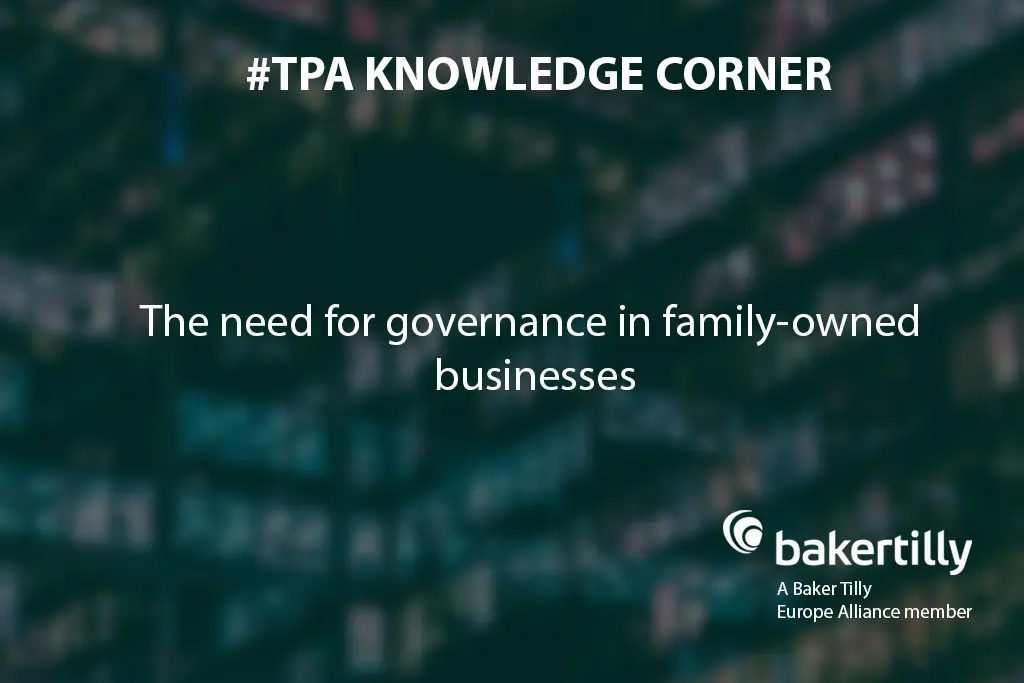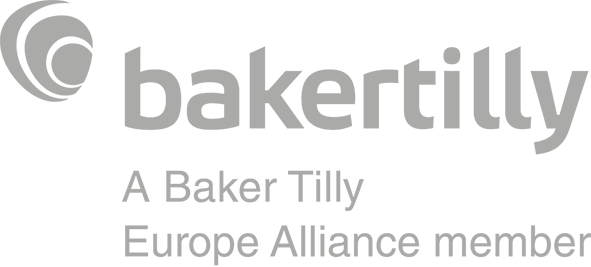7. August 2023
Reading Time: 4
Min.
news
The need for governance in family-owned businesses

Family-owned businesses are an important part of the economy, and they face unique challenges due to the dynamics of family relationships. With family members involved in both ownership and management, decision-making processes can be complex and challenging, so it is crucial that family-owned businesses develop governance structures before a need for governance arises.
With proper governance, family-owned businesses can thrive and achieve long-term success. However, without proper governance structures in place, family-owned businesses may encounter a range of problems that can impact their success and long-term viability. These problems may include:
- Lack of clarity around roles and responsibilities
- Lack of a clear decision-making process
- Lack of transparency and communication
- Family conflicts impacting the family business
- Succession challenges
- Inability to determine future direction of the business
Lack of clarity around roles and responsibilities
This is one of the most significant issues that can arise. Family members may assume different roles and responsibilities based on their relationships or personal interests, rather than their skills or qualifications. This can lead to confusion, overlap and conflicts that can ultimately affect the business’s success.
Proper governance can promote understanding about roles as owners, management, employees and family members as well as expectations for career and leadership development. Each family member should have a defined role in the business, with specific responsibilities that align with their skill sets and interests. This ensures that everyone is clear on their responsibilities and can work together effectively.
It is also important to establish clear boundaries between the family and the business. Family members should not be given preferential treatment or opportunities within the business, and professional relationships should be maintained at all times.
Lack of clear decision-making process
Without a fixed process, family members may make decisions based on personal preferences or emotions, rather than what is best for the business. This can result in decisions that significantly impact the business’s chances for success.
As part of a family-owned business governance structure, a detailed decision-making process should be established. The structure can take the form of a family council or board of directors, which provides a forum for family members to discuss business matters and come to resolutions.
The governance structure should also include nonfamily members, such as independent directors or advisors, to provide objective perspectives and guidance. These individuals can bring expertise and experience to the table and help to ensure that decisions are made in the best interest of the business.
Lack of transparency and communication
Family members may be reluctant to share information or hold each other accountable, out of fear of damaging relationships or causing conflict. This can give rise to a loss of trust and transparency, which can ultimately undermine the business’s success. Mechanisms for keeping family members informed on a timely basis of major business accomplishments, financial performance, issues and decisions that might impact employment, succession, dividends or other benefits should be developed, implemented and/or updated.
Effective communication is key to the success of a family-owned business. Communication channels should be established to ensure that all family members are kept informed of business developments and to facilitate open dialogue and collaboration. Regular family meetings and business updates should be scheduled, and formal communication policies should be established to ensure that everyone is aware of the expectations.

Family conflicts impacting the family business
Another issue that can potentially be avoided or mitigated by established governance is family conflicts that may spill over into the business. Family members may have personal or emotional conflicts that influence their ability to work together effectively, which can ultimately affect the business’s progress. This can be particularly challenging in family-owned businesses, where relationships are often intertwined with the business.
Family conflict within family enterprises is overwhelmingly one of the most common issues, but also one of the easiest to address. Conflict may arise about any number of topics, including compensation, division of assets, leadership, direction of the enterprise, charitable giving or countless others. Governance can provide avenues for conflict resolution in order to both solve problems and promote family harmony.
Succession challenges
Succession planning is crucial for the long-term success of a family-owned business. It involves identifying and developing the next generation of leaders and ensuring a smooth transition of ownership and management. A succession plan should be developed early on and should include criteria for selecting the next generation of leaders as well as a plan for their development and training. It is important to involve all family members in the succession-planning process and to ensure that the plan aligns with the overall strategy and goals of the business.
Inability to determine future direction of the business
Finally, a lack of governance may perpetuate indecision or inability to determine future direction. Family enterprise leadership may try to honor previous generations’ wishes, values or philosophies, but without a specific baseline of those variables, execution may become difficult. A clearly defined planning process driven by the board, will set up future generations and leadership with a road map to carry on desired legacies.
Conclusion
In conclusion, the governance of a family-owned business requires careful planning and implementation of best practices. By establishing clear roles and responsibilities, implementing a structure to facilitate decision making, establishing communication channels, managing conflict, developing a succession plan and defining a planning process for the future, a family-owned business can achieve long-term success and sustainability.
Source: BakerTilly








